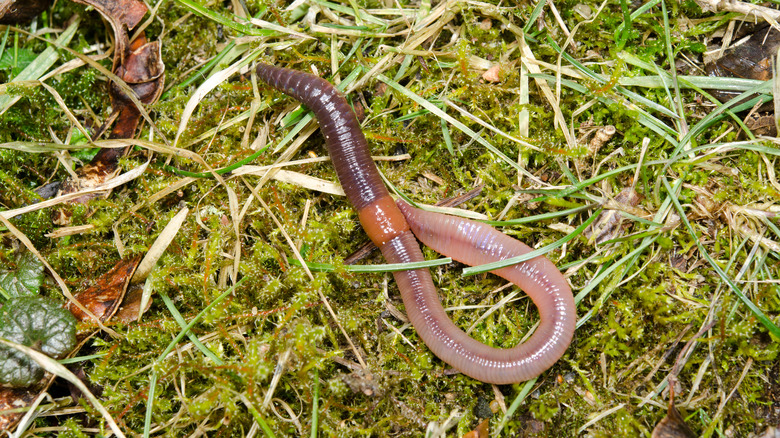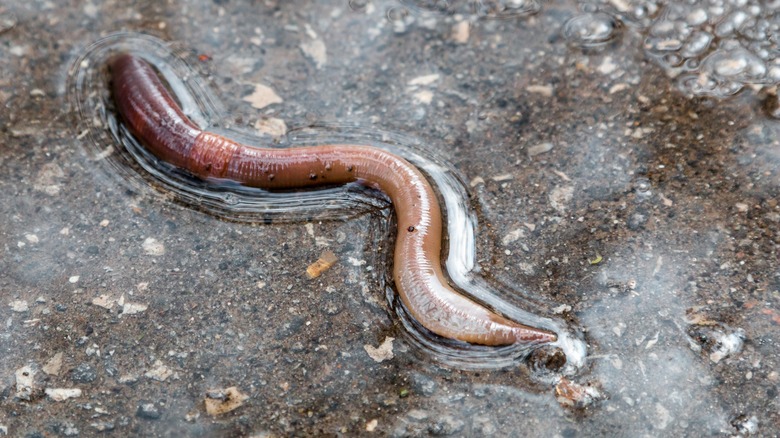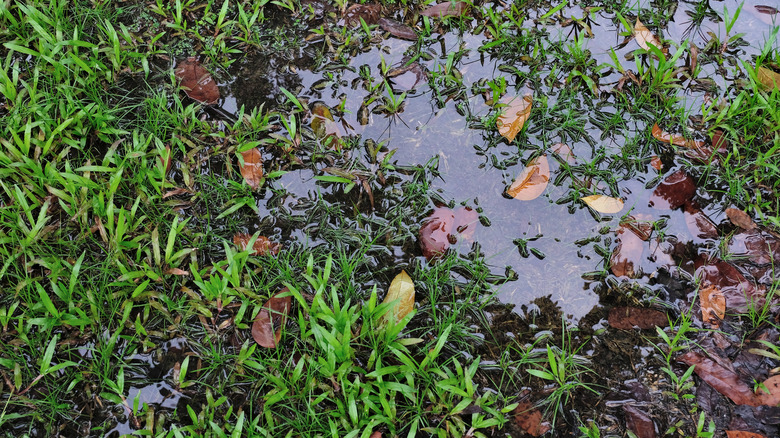Why Do We See So Many Worms After A Rain
It's not unusual to see worms aboveground and on sidewalks after a rain. It seems like odd behavior because it's so risky for them, so what makes them do it? You might have been taught that the reason behind the perilous activity is that worms cannot breathe in the rain-soaked ground, so they head to the surface for oxygen. This sounds logical enough, but the real reason seems to be a little bit more complicated.
For starters, worms don't have lungs like humans do. Mental Floss reports that they breathe through their skin, and actually need some moisture in the ground to help them do this. Even in soggy soil, worms can survive without needing to come to the surface. In addition, Nature explains that studies show most earthworms can survive in water for longer than two weeks, so the drowning theory doesn't seem to hold water.
Some worms need more oxygen than others
It turns out that not all worms are the same. According to the U.S. Department of Agriculture, there are 7,000 species of earthworms alone, and a study published in Invertebrate Biology examined how two different earthworm species — the Pontoscolex corethrurus and the Amynthas gracilis — behaved after rain at night. And their behavior appeared to be driven by how quickly they consumed oxygen.
The species Pontoscolex corethrurus does not use oxygen at a fast rate at night, and survives better under water. As a result, it does not need to emerge from the soil very often. On the other hand, the Amynthas gracilis uses oxygen at a faster pace during nighttime hours, meaning it needs more of it. Therefore, it must come to the surface more often. Based on this experiment, it appears that some worms need to come aboveground because they need more oxygen, but as not all worms practice this behavior, something else appears to be going on.
Rain changes the environment
Another theory as to why worms surface after rainfall focuses on how rain changes the composition of groundwater. Specifically, rain lowers the pH level of groundwater, making it less acidic than what worms prefer. The University of Illinois hypothesizes that rain flooding underground burrows causes worms to seek refuge on top of the soil.
Nature points out that earthworm experts have yet another explanation behind why some worms come to the surface of the ground after a rain, and it involves how they move. Basically, worms are slow, and getting around in the soil can be challenging. However, on the surface of wet ground, they can move much quicker. After a rain shower, worms have a golden opportunity to make headway above ground without drying out. It's no doubt hazardous, but being aboveground allows them to seek out new territory or find mates sooner and more efficiently.


